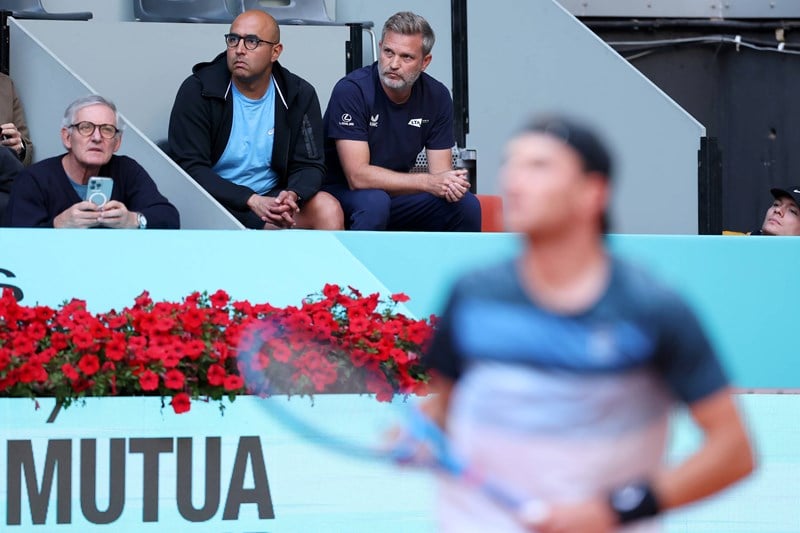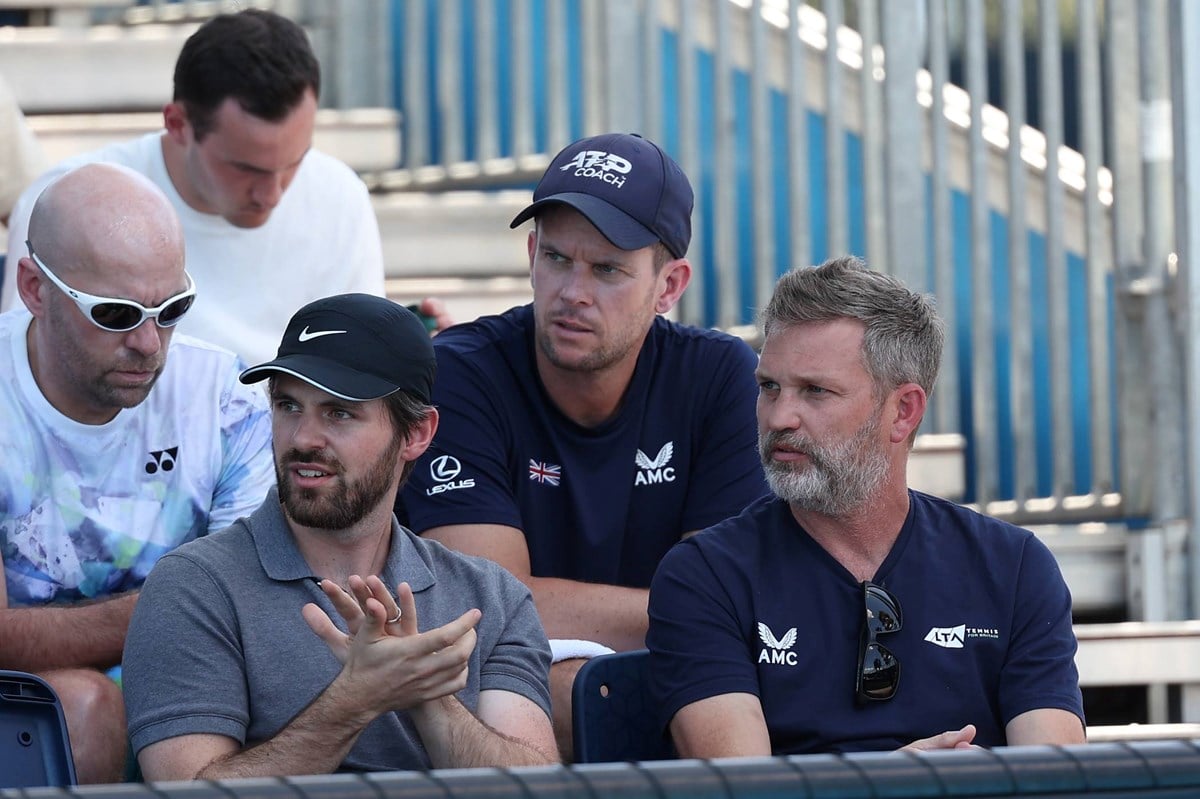Insights
How professional tennis coaches support players from the box

One of the most common things you’ll see watching live tennis on TV is the player’s coach sat up in their box carefully assessing every point in the match.
Following new rules introduced at the start of the 2025 season, coaches can give their players advice either verbally or using hand signals between points.
This reaches another level during team events like the Davis Cup or Billie Jean King Cup, where captains are able to sit on the player’s bench and communicate with them directly.
But what is the role of a coach in these situations and how do they look to deliver their messaging to a player while they’re in the heat of battle?
We caught up with LTA Men’s National Coach and former coach to British No.1 Jack Draper, James Trotman, to discuss what coaches can do to better communicate and positively impact their player’s performance during a match.
“You're constantly analysing - there's a lot of moving parts to it,” Trotman said. “Something can happen in a set, things can change and it's a game of cat and mouse, you always have to keep adapting.
“It’s what I really like about tennis, if you're causing an issue or a problem for your opponent the chances are, they’re going to do something to counter that.
“You've got to be following that and aware of it so you can be ready to deliver the right messages at the right time to help support your player.”

During matches players experience plenty of ups and downs, and the coaches on the sidelines aren’t immune to that either.
However, no matter the situation, no matter how the match is going, one of the biggest ways you can impact a player as a coach is through body language and non-verbal communication.
“I do think a big part of my job as a coach if I'm in the box as well is to try and stay pretty regulated,” he said. “You're feeling the pressure, the nerves and you're getting caught up in the intensity of the match, but you have to show your player that you’re staying calm in those moments.
“The last thing a player wants to do is look up to the box and the coach is freaking out. You know that they're under a lot of intense pressure and pushing their bodies and minds to the limit.
“Another part of our job of as coaches is to manage their emotions and to give them a little bit of direction if needed and also to help focus the mind.”
When it comes to coaching and giving advice to a player, it’s not quite as simple as when you’re on the practice court – there’s a lot more factors to consider.
You don’t want to give too much away to their opponents, you don’t want to overload them with information, you don’t want to break their focus, and you need to get your timing just right – that’s why the best coaches are effective communicators.
“You're trying to think clearly from point to point and if you are going to use some on court coaching it needs to be something that's clear and can help regulate them as well,” he explained.
“For example, you might give a cue to be more aggressive in a certain moment, which will benefit them, but it's quite broad.
“You're not going to get into the real levels of detail on what that looks like – that's what you've done on the training court. That's why you’ve spent all the hours carefully working on and analysing what being more aggressive in that situation would be.
“By giving them that cue in their mind, they know and understand that state and can hopefully start to bring it out on court and into the match.”
